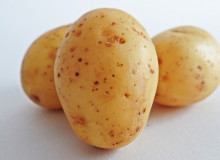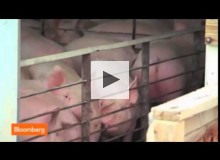Biofuels
Algae! Trash! Poop! Organisms convert energy from the sun into energy for life. PF Members offer their solutions on how to turn that biomass into an energy source for mankind.
Indigenous Correspondents Program | University of Alaska Fairbanks
As climate change impacts the price of energy in Alaska, Indigenous researcher Bax Bond abides by his heritage while using modern-day equations to help the rural communities that he once grew up in.
Mandela Washington Fellow
Most people in sub-Saharan Africa still use a wood fire to cook food. Aisata Ibamie, a young renewable energy engineer from Cameroon, has a low-tech solution to reduce indoor air pollution and save trees.
SUNY ESF
A podcast episode that gives an easy to digest breakdown of gasoline, octane ratings, and biofuels.
Planet Forward Correspondent | SUNY-Plattsburgh
As the world continues to urbanize, there is increasingly becoming a higher need for green, sustainable architecture. One striking example of this is Parc Frederic-Back in Montreal.

Arbuscular mycorrhizal fungi live in symbiosis with plant roots and are able to store up to 70 percent of organic carbon from leaf litter. (Mark Perkins/Flickr)
George Washington University
In many cases microbes are already helping the planet in underrated ways. Technological developments and advanced genetic engineering make microbiological innovation a major player in climate change mitigation.
Northwestern University
Through a scientific process that seems almost magical, the creation of biochar takes you a step closer to reducing your carbon footprint. But this technique has a history that dates back further than you might think.
Planet Forward Intern/Marymount University
A food factory in the UK is taking the term "plant power" to a new level: It runs on potatoes.
Planet Forward
Biofuels have us making energy from all sorts of substances, but Duke University researchers are taking waste-to-energy literally with fuel from pig poop.
Planet Forward
John Motter, farmer and director of the United Soybean Board, thinks we can replace petroleum products with biobased materials.
Planet Forward
It turns out you can do a lot with a little bean. Hear from the experts on how biobased products can replace petroleum and break new ground.









